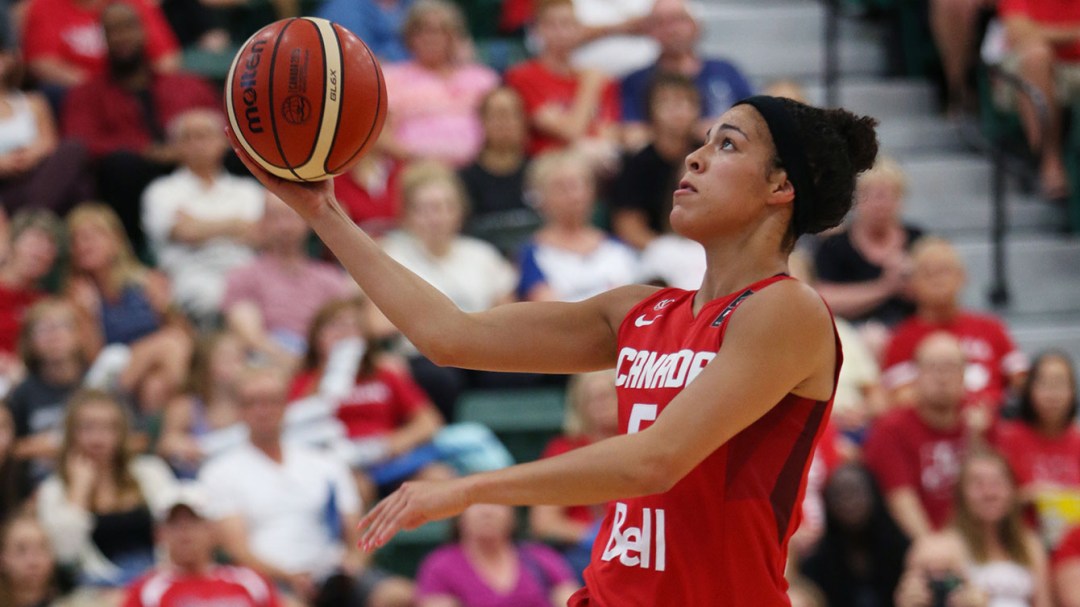International Women’s Day: Female athletes lead Team Canada to Rio
Feature photo: (L-R) Melissa Bishop, Magali Harvey, Kadeisha Buchanan.
Picture it: Amsterdam 1928. The first Olympic Games at which a Canadian team included women. There were just seven on a roster of 92 athletes, but their efforts were enormous, bringing home four of Canada’s 15 medals.
The names have become legendary. “Saskatoon Lily” Ethel Catherwood, Fanny “Bobbie” Rosenfeld, Ethel Smith, Myrtle Cook and Jane Bell made Canada the only country to win more than one gold medal across the five women’s athletics events.
RELATED: Int’l Women’s Day & Canadian success (2015)
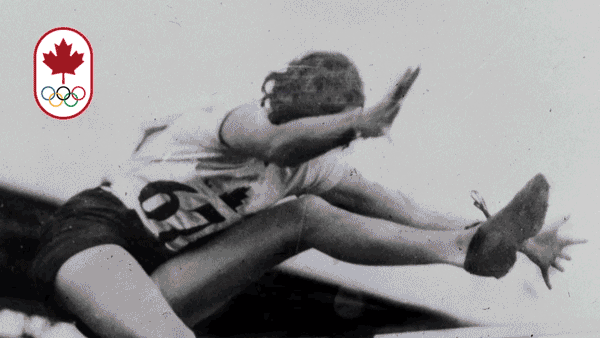
Ethel Catherwood (Amsterdam 1928) and Brianne Theisen-Eaton (London 2012) in the high jump.
Much has changed in Olympic competition over the years, especially as sports strive for gender equality. At Rio 2016, wrestling will feature six women’s weight classes instead of the four that have been on the program since Athens 2004. A proposal is in place for Tokyo 2020 that would see women’s canoe events make their Olympic debuts after having been part of the Pan American Games for the first time this past summer at Toronto 2015. That would be quite the career capper for Laurence Vincent Lapointe who’s won seven world titles. This comes after women’s boxing was added to the Olympic program at London 2012.
Changes such as these have led to women forming a larger and larger percentage of Canadian Olympic Teams and contributing more and more medals.
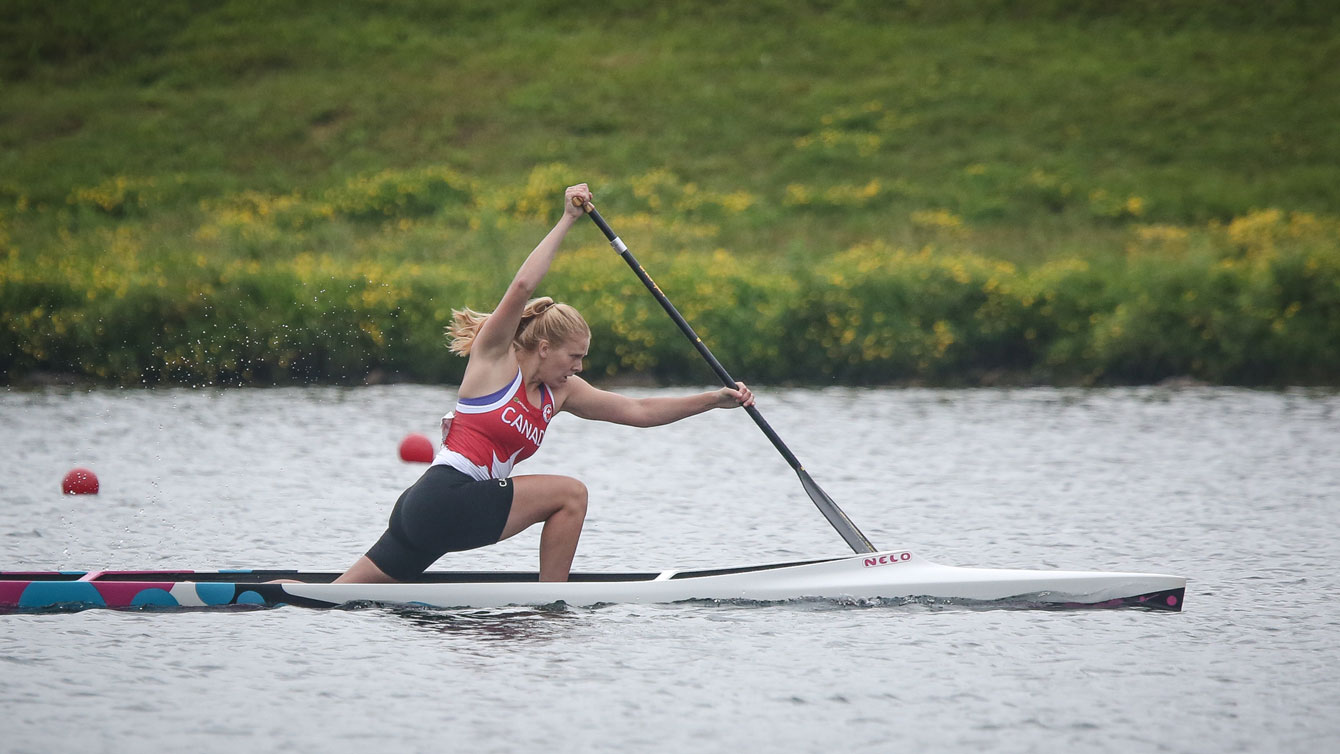
Laurence Vincent Lapointe paddles to the first-ever Pan Am Games women’s canoe gold medal on July 14, 2015.
Now less than five months away from Rio 2016, it’s obvious that women will play a more important role than ever for Canada.
At the 2015 Pan Am Games, Canada earned a best ever 219 medals. Amazing, sure. But how about this? More than 50 percent of those medals (111 to be exact) were won solely by women compared to 45 per cent (99 medals) by men. The remaining nine medals came in mixed events. The breakdown is even more impressive considering men outnumbered women on the team, 370 to 345.
RELATED: Canada’s medallists at TO2015
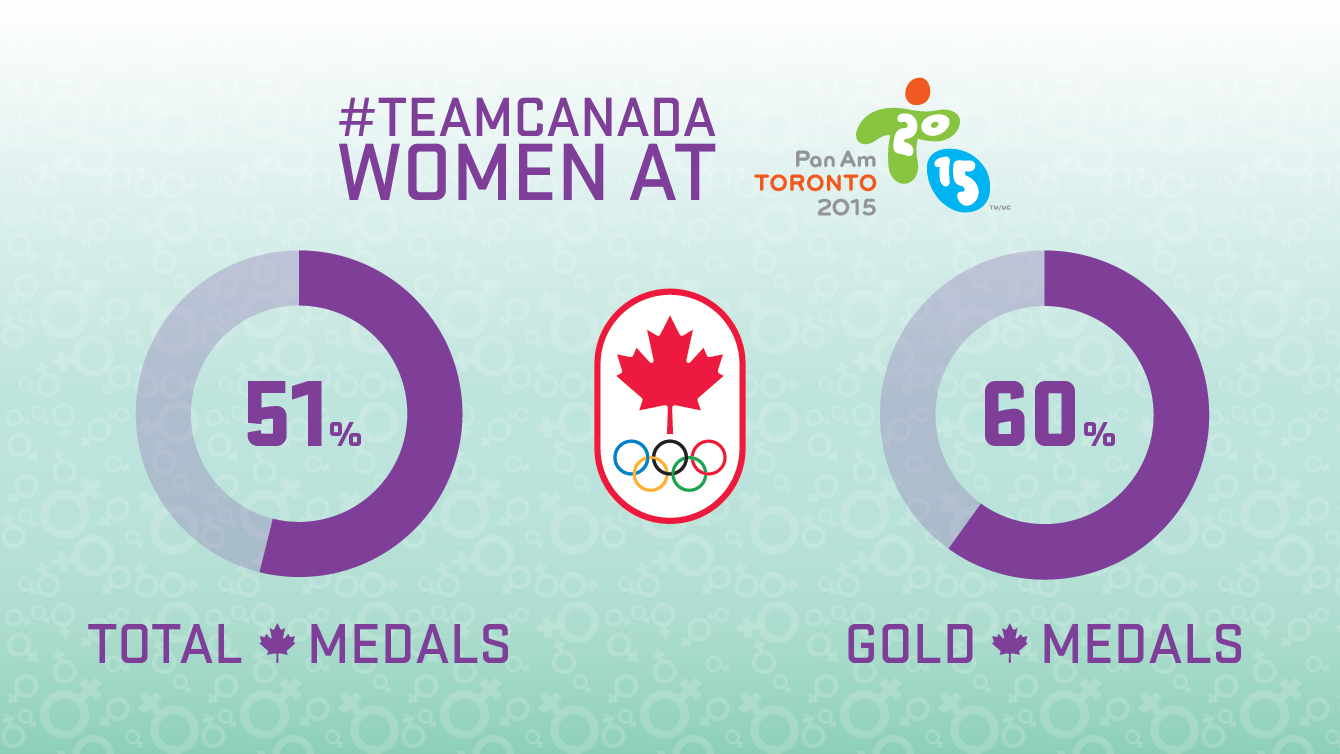
Team Canada women at TO2015 Pan Am Games.
Don’t forget that Canada’s most decorated athlete was also female, with gymnast Ellie Black standing on the podium five times. Three of those were gold medals, part of Canada’s total haul of 78. Women accounted for a remarkable 60 per cent by winning 47 events compared to just 30 gold medals in exclusively men’s events.
RELATED: Nurse closes TO2015 after leading team to gold
The winning didn’t stop at TO2015. Canadian athletes claimed 18 medals across the various summer sport world championships last year. While only eight of those were courtesy of women, they did show success in a wider range of sports than men. Whereas the 10 men’s medals were won in just four sports (athletics, canoe/kayak sprint, judo, swimming), women reached the podium in six sports (athletics, track cycling, diving, rowing, swimming, wrestling).
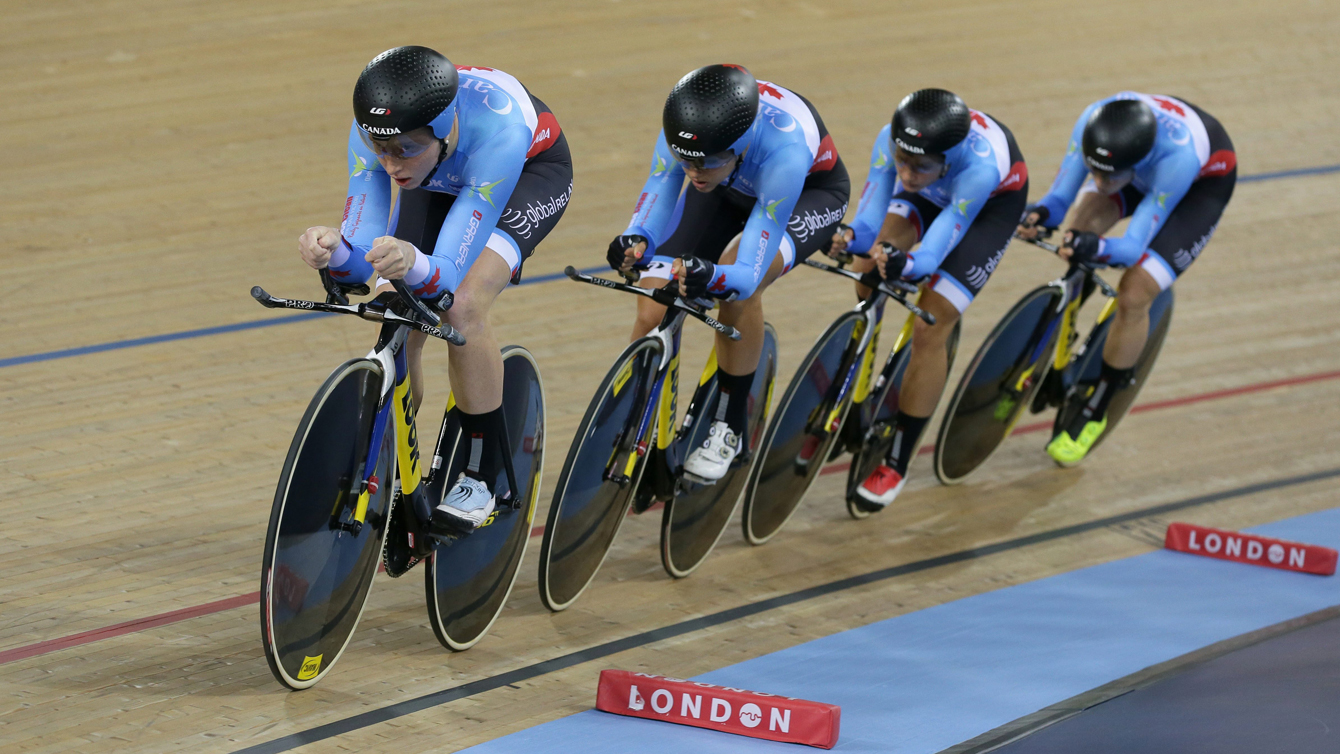
Canada rides to a silver medal at the World Track Cycling Championships in London, Friday March 4, 2016. (Tim Ireland)
Some of those medals also secured Olympic berths for Rio 2016. At this juncture, Canada has officially earned entry into 58 events, of which 60 per cent (35 events) are for women and 29 per cent (17 events) are for men. Taking it a step further, Canada has guaranteed itself a team of at least 175 athletes, of which 69 per cent would definitely be women and just 26 per cent would be men.
RELATED: Team Canada Olympic qualification tracker
Of course those qualification numbers will alter as Rio draws closer and more quota spots are earned. But it wouldn’t surprise anyone to see a ratio of athletes similar to what Canada had at London 2012 where on a team of 279 athletes, women outnumbered men, 157 to 122.
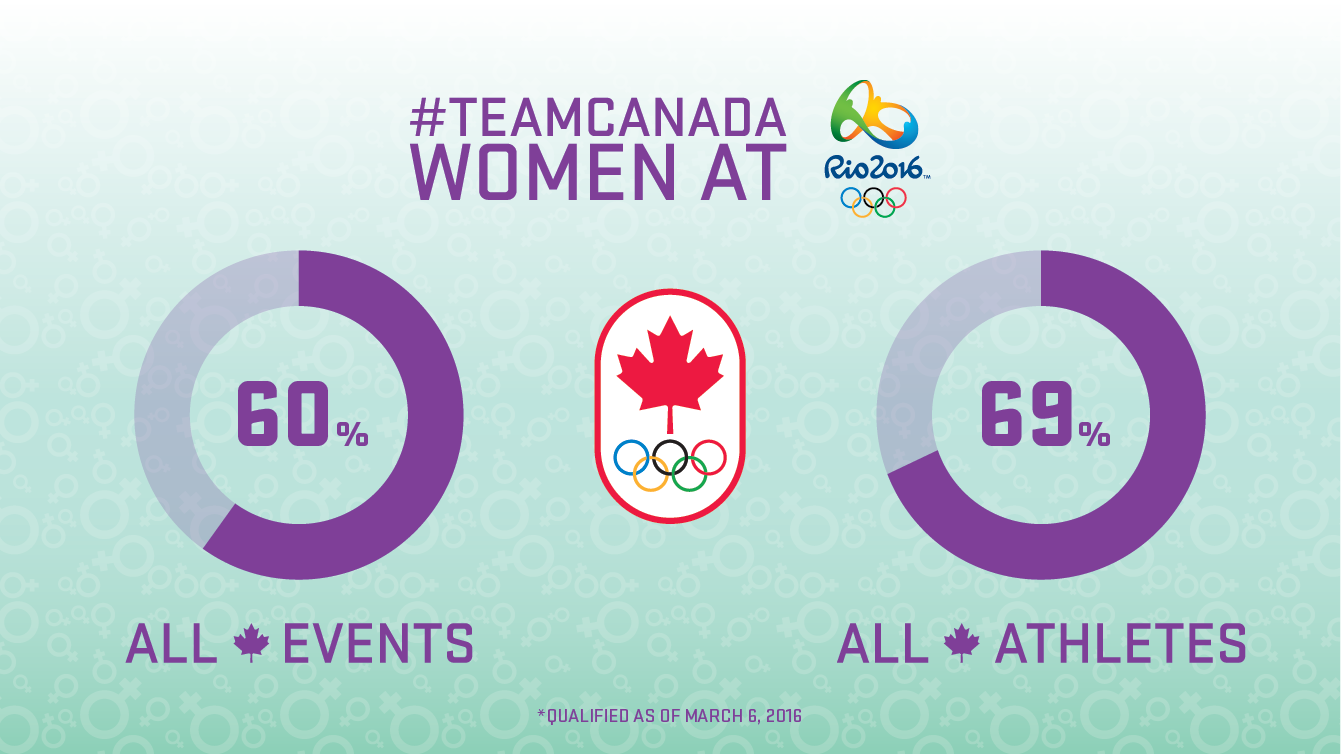
Team Canada women at Rio 2016 (qualified through March 6).
What has led to the current disparity? Well, team sports are always one way to bolster a team’s size. Canada has already qualified women’s teams in basketball, soccer and rugby, while the only men’s team qualified is field hockey.
Women also have the upper hand in diving (qualifying the maximum quota in all four events), artistic gymnastics (qualifying a full team of five), rowing (qualifying in four of six events versus two of eight for the men), and wrestling (becoming the first country to qualify in all six events). The numbers don’t even include track cycling, which had its qualification window close following the world championships this past weekend. Based on world rankings, it is likely that Canada will earn entry into all five women’s events.
What does this all mean? To put it bluntly: Canadian women are kicking ass.

